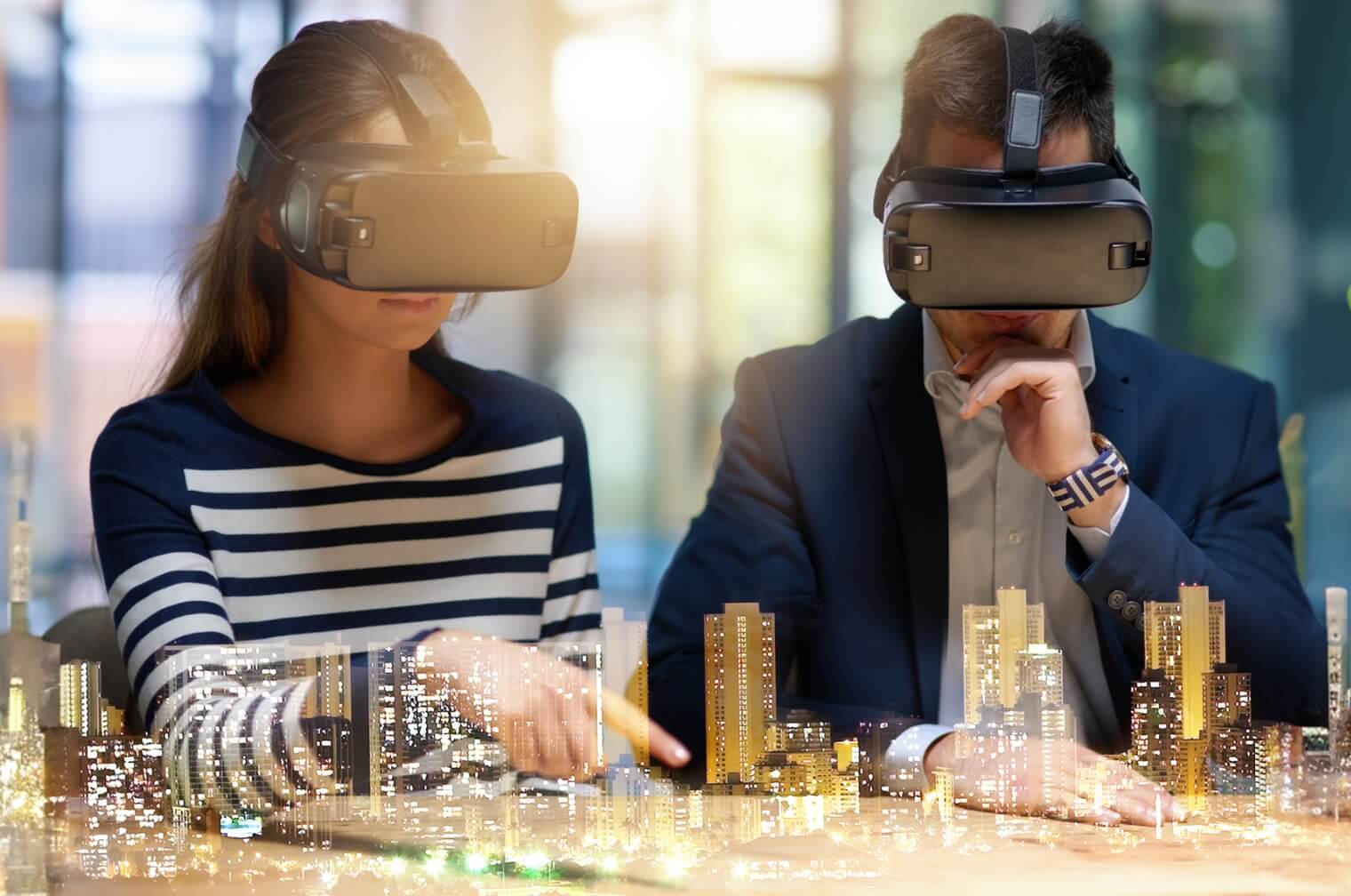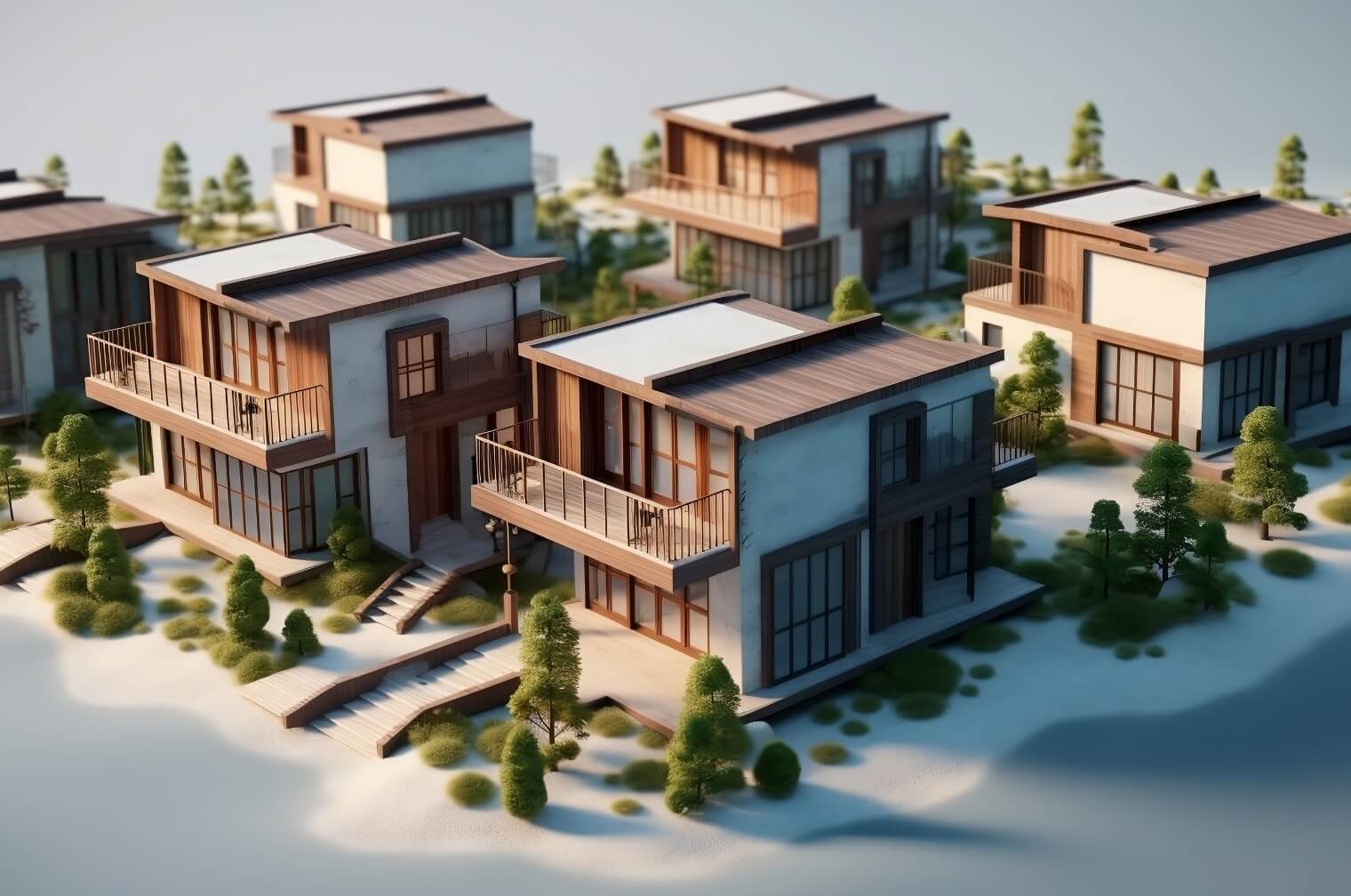Machine Learning and AI for revolution of Tech Companies are changing and streamlining businesses.
Owing to the current ongoing pandemic of COVID-19 and the resulting lockdown, potential buyers are stuck at home and the way to move outside from home, which has vastly affected the relationship between buyer-seller in all business domains.
But this turning situation has needed both the demand and supply sides to adapt to the best and newer ways to look at the real estate sector. The current crisis has also forced stakeholders, vendors, and business owners to increase the use of technology and other digital platforms to improve sales in this sector.
Undoubtedly immersive vr for real estate developers are facing a very challenging situation and working around it to attract buyers, mainly using tech-based solutions in the current situation.
Indeed, the lockdown has vastly impacted site visits and physical communication with real estate developers; real estate businesses are investing massive amounts in digital platforms incorporating modern ways to provide the physical experience of the property and book that online with comfort at home.
Online booking platforms, drone shoots, and virtual tours are getting more attention and prominence due to the increasing number of online buyers.
Role of immersive technologies in real estate
Immersive technologies such as virtual and augmented reality offer the real estate industry a unique opportunity to provide potential buyers with an engaging and interactive experience. These technologies offer an alternative to traditional open houses and property viewings, enabling prospective buyers to view properties worldwide.
Using immersive technologies in real estate has several benefits. They offer a more immersive and engaging experience that can save time, effort, and money for both buyers and sellers. They can also help real estate businesses to stand out in a crowded market, differentiate themselves from competitors, and cater to a broader range of clients.
Real estate and the AR/VR market
According to research from Goldman Sachs, Augmented Reality (AR) and Virtual Reality (VR) are expected to be an $80 billion market by 2025. VR is expected to generate $2.6 billion by 2025 alone in the real estate market. In the same year, more than 1,25,000 real estate agents will utilize VR to showcase homes to buyers with annual spending of $5,000, and it will grow yearly by 10%.
Start-ups and well-established companies are eagerly adopting immersive technologies to support their businesses and make them durable during the current crisis. Additionally, the real estate sector will be one of the biggest recipients of VR-like technologies such as virtual showcases, virtual property tours, 3D- designs of interiors, exteriors, and engineering visualization.
One of the core benefits of VR technology is it ensures virtual co-locations of teams. When there is no space for physical meetings to ensure the primary messages, immersive technologies make it easy to transfer our best work cultures and project designs into the virtual world, to retain efficiency and reliability.
All such benefits are related to the lockdown period: up to 2/3 of all real estate projects suffer from cost and time overruns due to several issues like communication gaps, and it has become a big challenge for realtors. It is also a painful condition for all architects and designers – the gap between on-paper and end-product designs.
One of the simple reasons for this gap is the incompetence of clients to observe space and designs from the 2D media of renderings and drawings, and rapid iterations to meet their expectations become a highly chargeable tool for the industry resources.
The impact of immersive vr on real estate marketing and sales
The impact of immersive virtual reality (VR) on real estate marketing and sales has been significant. VR has revolutionized the way properties are showcased, allowing potential buyers to experience them in a more engaging and realistic manner. Here are some key ways in which VR has influenced the immersive VR for real estate industry
How VR is transforming real estate marketing
VR is changing the way properties are marketed to potential buyers. With Immersive VR for real estate, potential buyers can take virtual tours of properties without physically visiting them. This is especially useful in the current climate, where in-person tours may not be possible or safe. VR also allows buyers to experience a property’s spatial layout and scale in a way that traditional photographs cannot.
Case studies of VR adoption in the real estate industry
Several real estate companies have successfully adopted VR technology to improve their marketing and sales efforts. For example, Sotheby’s International Realty uses VR to give potential clients virtual tours of luxury properties. Zillow offers a virtual staging service that allows sellers to transform an empty home into a fully furnished one. These success stories show that VR can be a powerful tool for real estate businesses solution.
Benefits of immersive technologies
Immersive technologies can play a significant role in making the real estate sector more powerful and profitable. – by empowering virtual tours, empowering the stakeholders to make better decisions, offering a global reach and saving time and money through a modern transformative way of feeling, experiencing, reviewing, and updating projects even before the development phases.
Convenience
It is predicted that buyers want the technology to look at homes independently in the current situation. While agents need the technology to showcase their projects to buyers and generate demand on both sides.
Here VR-like immersive technology offers a more immersive and real-life experience without the time commitment and inconvenience of physically visiting the real estate properties for customers looking to purchase.
Feedback
The VR-like immersive technology solutions capture and record the specific areas of the property where buyers spend most of their time. Also, it can offer more valuable feedback to realtors about user preferences.
Confidence
Virtual visits to homes could boost the buying process by enhancing the confidence of potential home buyers. Virtual visits enable buyers to experience the property and make quick decisions if it fits with their requirements.
The confidence that comes from immersive technology is vital to customers, as indicated by the Forbes survey. The Forbes survey shows that 77% of all home buyers affirmed that virtual tours play a vital role in making quick buying decisions.
Challenges for immersive technologies in real estate
Challenges in implementing immersive technologies in real estate can include cost, technical expertise, and user adoption. However, the benefits of using immersive technologies to market and sell properties can outweigh these challenges.
By creating a compelling and engaging experience for potential buyers, real estate businesses can increase sales and gain a competitive advantage in their markets.
Immersive technologies have the potential to revolutionize the real estate industry, offering new ways to market, sell and showcase properties to prospective buyers. While there are still some challenges to overcome, the benefits of immersive technologies in real estate are clear. As we navigate the current crisis, embracing these technologies can help real estate businesses adapt to the new normal and stay ahead in a rapidly changing industry.
Conclusion
Before adopting immersive technologies factors, real estate businesses should consider their target market and the technology’s cost-effectiveness. Our immersive technology solutions include using the technology effectively according to the client’s willingness to adapt the technology.
In the future, intelligent, sophisticated, and immersive technologies will significantly drive more sales and potential buyers to real estate developers. Innovations and virtual technologies create more possibilities, improve customer experience, offer worldwide reach, save money, and bring more efficiency to the real estate sector.
Frequently asked questions
Immersive technologies are advanced technologies that create a highly interactive and engaging experience for the user, such as virtual or augmented reality.
Immersive technologies can provide virtual property tours, virtual staging, and even virtual reality property viewings, all of which can be done remotely, making buying and selling the property even during social distancing.
To integrate immersive technologies into your real estate business, you will need to research and invest in the necessary hardware and software and develop a strategy for implementation and marketing.
While immersive technologies can significantly reduce the need for in-person visits and make the process more efficient.









